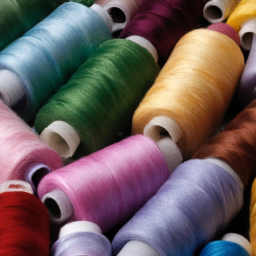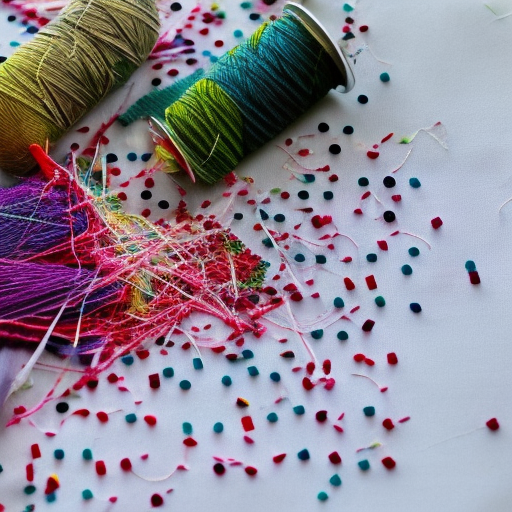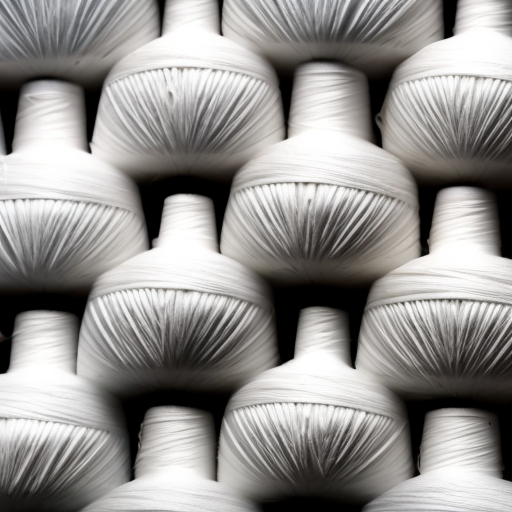
What Causes Thread to Shred When Sewing
Sewing is a popular activity that allows us to create beautiful garments, homeware, and accessories. Whether you are a professional tailor or just enjoy sewing as a hobby, you may have encountered the frustrating issue of thread shredding. This article aims to shed light on the various factors that can cause thread to shred during sewing and how to prevent it.
Lack of Thread Quality
One of the primary reasons for thread shredding is using poor quality thread. When selecting thread for your sewing projects, it is important to choose a suitable type and quality. Threads that are fraying or have thin strands are more likely to shred. Opt for high-quality threads made of durable materials like cotton or polyester.
Needle-related Issues
The needle is another crucial component that can contribute to thread shredding problems. A damaged or dull needle can cause excessive friction against the thread, resulting in shredding. It is essential to regularly replace your sewing machine needles, especially when working with heavier fabrics. Additionally, using the wrong type or size of needle for your fabric can also lead to thread shredding. Always choose an appropriate needle recommendation for your specific fabric and project.
Tension Troubles
Incorrect thread tension is a common culprit for thread shredding. When the thread tension is too tight, it can cause excessive stress on the thread, leading to shredding or breakage. Similarly, if the tension is too loose, the thread can snag and shred during the sewing process. Make sure to check and adjust the thread tension according to your sewing machine’s guidelines and the fabric you are working with.
Bobbin Woes
The bobbin, the small spool that holds the lower thread, can also be responsible for thread shredding. Incorrectly wound bobbins, uneven tension, or debris stuck in the bobbin case can cause the thread to shred or break. Ensure proper bobbin winding, clean the bobbin case regularly, and check for any damages to avoid these issues.
Inadequate Maintenance
A sewing machine that is not properly cleaned, oiled, or maintained can lead to thread shredding problems. Lint and debris can accumulate in the machine, causing increased friction and thread breakage. Regularly clean your machine, following the manufacturer’s instructions, and keep it properly lubricated to ensure smooth sewing and minimize thread issues.
Conclusion
Thread shredding during sewing can be a frustrating experience, disrupting the flow of your project. By evaluating and addressing potential causes such as poor thread quality, needle-related issues, incorrect tension, bobbin troubles, and inadequate maintenance, you can significantly reduce thread shredding and improve your overall sewing experience. Remember to always prioritize using high-quality thread, maintaining your sewing machine, and adjusting settings as necessary for the specific fabric and project at hand.





Poorly set tension levels and low quality fabric are usually the culprit.
Kara Palazzolo-Reed: Using a dull or inappropriate needle can lead to shredding thread.
Sabina Winters: If either the bobbin or upper thread is too tight, threads can break and shred.
The stitching speed may also be responsible for shredding thread; going too fast can cause the needle to heat up and weaken the thread.
Using the wrong thread for your fabric weight can also cause it to shred.
It’s important to have the correct bobbin tension and use quality thread and needles to minimize shredding when sewing.
All of these factors combined contribute to shredding when sewing. Combining proper tension, needle, thread, and speed will help minimize shredding.
With too thin of a thread and needle size, shredding can occur and reduces the effectiveness of the stitch.
Different fabrics and settings require different needle and thread types, so make sure to adjust the needle size and thread type accordingly to reduce the chance of thread shredding.